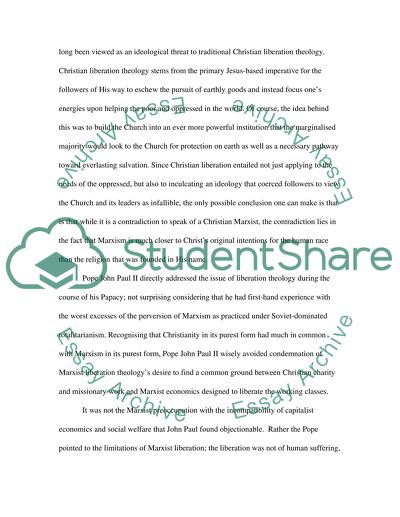Cite this document
(“Liberation Theology and Marxism Essay Example | Topics and Well Written Essays - 3500 words”, n.d.)
Liberation Theology and Marxism Essay Example | Topics and Well Written Essays - 3500 words. Retrieved from https://studentshare.org/religion-and-theology/1510592-liberation-theology-and-marxism
Liberation Theology and Marxism Essay Example | Topics and Well Written Essays - 3500 words. Retrieved from https://studentshare.org/religion-and-theology/1510592-liberation-theology-and-marxism
(Liberation Theology and Marxism Essay Example | Topics and Well Written Essays - 3500 Words)
Liberation Theology and Marxism Essay Example | Topics and Well Written Essays - 3500 Words. https://studentshare.org/religion-and-theology/1510592-liberation-theology-and-marxism.
Liberation Theology and Marxism Essay Example | Topics and Well Written Essays - 3500 Words. https://studentshare.org/religion-and-theology/1510592-liberation-theology-and-marxism.
“Liberation Theology and Marxism Essay Example | Topics and Well Written Essays - 3500 Words”, n.d. https://studentshare.org/religion-and-theology/1510592-liberation-theology-and-marxism.


